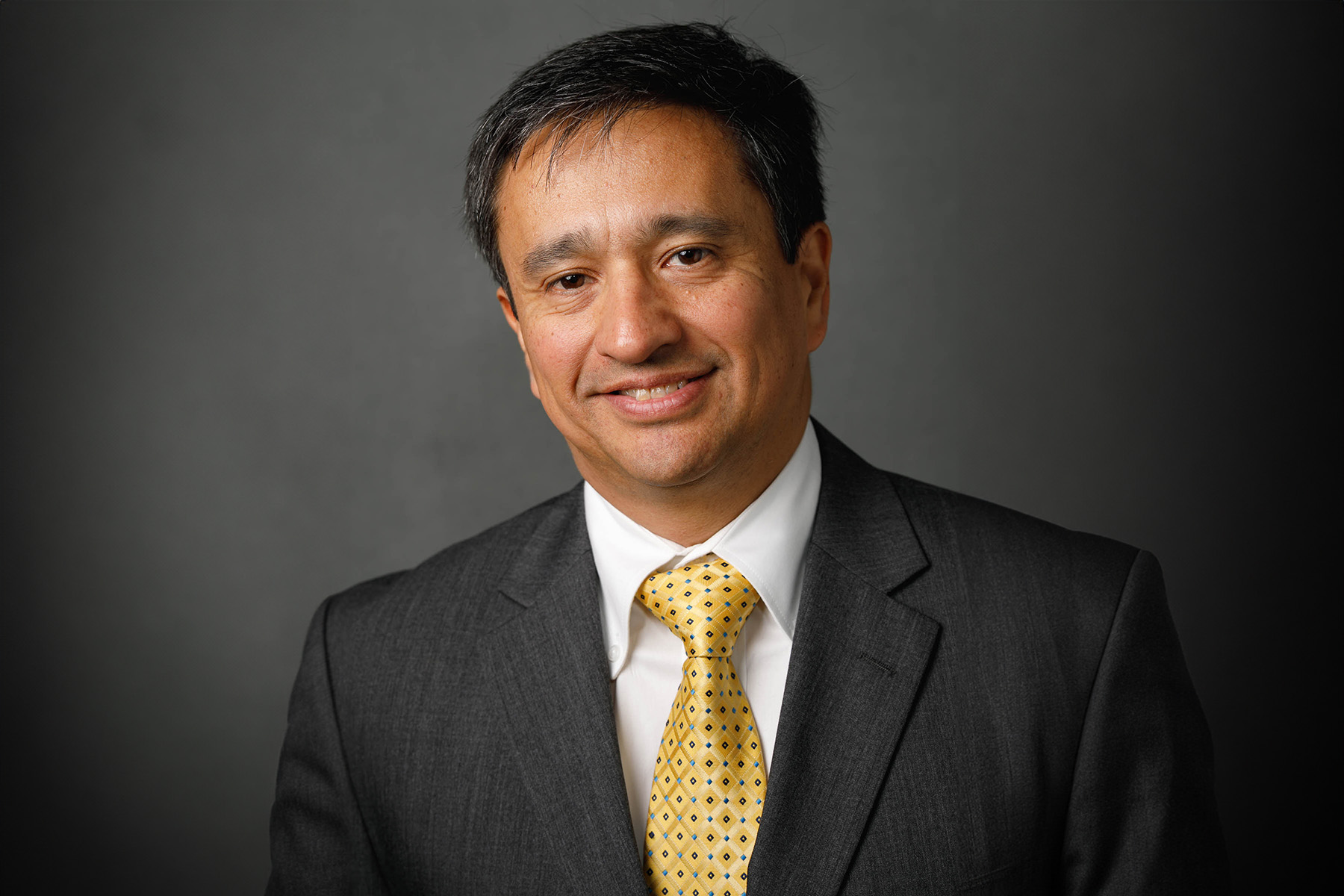
With a new academic health center, shared hires and exceptional investment from state government, the partnership between Florida State University and Tallahassee Memorial HealthCare (TMH) continues to grow and improve health care in North Florida.
FSU and TMH have long worked together to advance health care knowledge and practice through residency programs in disciplines such as internal medicine, general surgery and psychiatry. Recent new initiatives are helping to take that partnership further.
Helping this collaboration thrive is Dr. Enrique Urrea-Mendoza, an assistant professor at FSU's College of Medicine and the coordinator of the Movement Disorder Clinic at TMH. A distinguished neurologist with a passion for movement disorders whose expertise and dedication are driving this partnership to new heights, Dr. Urrea-Mendoza plays a pivotal role in enhancing both patient care and medical education at FSU and TMH.
What is your background in the medical field?
I am a neurologist originally from Colombia, where I completed medical school and developed a strong passion for research and teaching, working at Pontificia Universidad Javeriana and Universidad del Rosario, two of the largest medical schools in Colombia. After moving to the United States, I pursued additional training, including a fellowship in movement disorders. My career in the U.S. began in Greenville, South Carolina, with Prisma Health, focusing on movement disorders and research.
I have a deep passion for Parkinson's disease and Parkinsonism, and my research has involved new therapeutics, deep brain stimulation and advanced medications. My expertise in these areas led to my current role at FSU and Tallahassee Memorial HealthCare, where I am helping to build and support the deep brain stimulation program.
How has the collaboration between FSU Health and TMH impacted patient care and research outcomes in the community?
The relationship between FSU Health and Tallahassee Memorial HealthCare has been a fascinating journey for me. My role bridges the academic and clinical worlds, allowing me to work closely with students and engage in groundbreaking research. At FSU, I am surrounded by brilliant professors and eager students, many of whom are passionate about research. This environment has enabled us to explore various projects, from exercise and dance to brain stimulation therapies. The synergy between FSU's academic resources and TMH's clinical expertise creates a platform for innovative research and patient care.
Starting from scratch, we've built a strong foundation of trust within the community. Now, with a stable presence in the community, we can see patients regularly and provide consistent care. This stability has allowed us to expand our research efforts and foster a supportive network for our patients. The collaboration between FSU and TMH is a testament to the power of combining academic excellence with clinical practice to improve patient outcomes and advance medical research.
Can you share your journey and experiences in specializing in movement disorders?
After completing my training as a neurologist, I chose to focus on movement disorders, which encompass a variety of diseases. This specialization led me to establish a movement disorder clinic in Tallahassee.
I genuinely love my work, from seeing patients to conducting research. One of the most common conditions I encounter is Parkinson's disease. Recently, we launched the Parkinson's Support Network, which has been a significant milestone for us.
This new network provides patients with the opportunity to ask questions and clarify their understanding of the disease. Despite Parkinson's being a well-known condition, many people still have numerous questions about it. I find great fulfillment in helping to answer these questions and support my patients through their journey.
How does FSU's clinic-based teaching better prepare students for their medical careers?
The way we teach in medical school is a bit different. We do have some classes and lectures, but the most important part of the teaching process is when you're facing a real patient. As a medical student, being with your professor and seeing how they interact with patients, think about diseases and approach different conditions is crucial.
This hands-on experience is invaluable. That's why having students in my clinic is so important. I don't have traditional classes; my clinic is my classroom. This method allows students to learn in a real-world environment, which I believe is the most effective way to understand and practice medicine.
As a faculty member at FSU, the way we teach is different. I don't need to be in front of 60 people all the time. Sometimes I do give lectures, but most of the time, it's with a small group of 2 or 3 students, directly interacting with real-life patients. This approach not only helps students learn better but also prepares them for the realities of medical practice. It's a dynamic and engaging way to teach, and it ensures that students are well-prepared for their future careers in medicine.
What new services have you introduced for patients, and what are your plans for these services?
One of the services we've started is the Parkinsonism Multidisciplinary Team Clinic. This clinic operates one day a month, focusing on atypical Parkinson's disease, which makes up about 20% of cases. In this clinic, patients spend about two to three hours with us, receiving comprehensive care from our entire team, including physical therapists, occupational therapists, social workers, speech therapists, neuropsychologists, geriatricians and myself.
Looking ahead, we envision expanding these services, bringing in more specialists, and continuing to improve the quality of care we provide. Our goal is to become a leading center for Parkinson's disease and movement disorders, offering the best possible outcomes for our patients.






